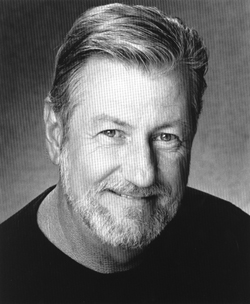The past few years have seen many changes within the artistic community at UMass Boston, like the arrivals of new pieces of sculpture such as Stinger, and the retirement of former technical director Ron Nash. However, in heralding the fall semester, we also see the demise of The Division of Communication and Theatre Arts. The arts aegis will now be called the Department of Performing Arts, encompassing Music, Theatre, and Dance. Communications will move to American Studies.
I sat down with Jon Conlon, Chair of the former Theatre Arts Department. In his eyes, “The merger of Theatre Arts, Music, and Dance will make it easier for collaboration since they have small faculties but common interests.” The changes were proposed in the previous spring semester of 2002 but the fall semester will be spent working out the kinks in the new system. Jon was quick to assure me that “no classes will get dropped.”
Conlon is no stranger to the changes at UMass as he has been teaching at UMB since 1974. Originally an English major with a masters’ in literature from Tufts, Conlon has been participating in theatre for as long as he can remember. Not only does he teach courses in lighting design, acting, and directing but he also finds time to do drama workshop and work with students independently. Between advising and helping run the department, he also helps with planning and implementing productions in the McCormack Theatre.
Unfazed by the administrative changes, he adds that, “I’d love for a composition student to write lyrics. It’s easier to work together if you’re right across the hallway from one another.”
The running theme for the upcoming productions in the fall seem to carry the common thread of being, in some way, shape, or form, adult-oriented fairytales. The first of them to be performed will be Cinderella Waltz, “Into the Woods without the music,” according to Conlon. It will be set in the present, leaving the location to the actors to decide. The dialogue in the script is fairly ambiguous, castle and prince not withstanding. Conlon first encountered this play years ago while judging a high school performance for The Boston Globe.
The comedic aspect of Cinderella Waltz adds another level of difficulty not to be denied. “It’s easier to make people cry than it is to make them laugh. It’s in the timing,” comments Conlon. “Charles Dickens once said ‘Make them laugh, make them cry, make them pay.'”
The next to be performed will be Alice in Wonderland, a script that successfully manages to merge the elements of both the original Alice in Wonderland and Through the Looking Glass.
It is wonderful to be able to wander back through the tales of our childhood but, as adults, it seems impossible to relate to the boundless innocence and belief that surrounds most youth. Jon disagrees, “These stories tell us more about ourselves than any sermon.”
Students in the theatre have an unusual amount of independence at UMass. Because of the small faculty, students are provided with more opportunities for structured, instructional hands-on work. Alice is to be directed by Eileen Rooney for her senior Honors project. Unfortunately, UMB doesn’t offer a graduate degree for theatre arts. 2002 will have even more hands than before with the 133 confirmed theatre majors, the highest yet in a usually small program.
Besides two full stage productions and a New Works Festival, the theatre arts community is looking to get involved in the Kennedy Center/American College Theatre Festival and to bring in the Boston Directors Lab and Boston Children’s Theatre as on-campus programs for undergraduate students to work in and participate in internships. Fall has barely begun but Conlon is already looking at putting on Shakespeare, particularly Romeo and Juliet and Twelfth Night.
Conlon hopes to hire another full-time professor, yet recent budget cuts may force them to put off that dream. He remains upbeat in looking at the future of the arts at UMass. “You can’t be anything but optimistic to be in theatre.”

